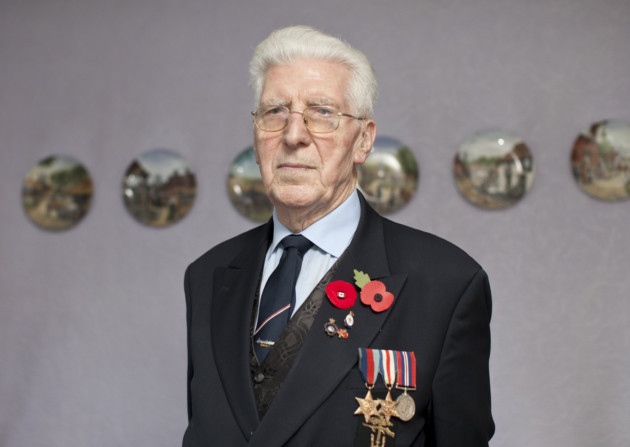88 years old veteran soldier Richard Blyth talks about his experiences of allied invasion of Holland. There he was a part of the Combined Operation at Scheldt Estuary which was operated to release the port of Antwerp from the Germans. This battles was fought in the year 1944 to remove the dominance of Germans on the island of Walcheren, that stood right in the middle of the supplies and the allied forces, 60 kilometres inland of the coast. The efforts of air force, military, and navy were involved in this combined operation.
Richard Blyth while lamenting on this fellow colleagues whom he lost during the war of 1944, said, “I survived and got married six years after war ended”. “I have a son and daughter, four grand children and great-grand children”. “But many I served with didn’t make it. They didn’t have children and grand children like me because they made that final sacrifice.”
After the war seventy years has passed and Richard for the ninth time went for Holland to commemorate his fellow colleagues. With him he took up a poppy wreath with a personal message on it. He took this to offer on his fellow comrade’s memorial in Holland.
Sending supplies via Walcheren was costly but worth the cost. As it was strategically the right decision. The supplies helped the allied forces in their combat against the Germans which eventually resulted in their defeat. Richard said, “That definitely shortened the war”. “The three hundred mile supply line from Normandy was reduced after we destroyed the German batteries. It was a costly exercise but necessary.”
The fortified Atlantic Wall defence was completed collapsed by the combined operation of the allied forces. Then it took three weeks to remove the land mines in the Scheldt Estuary which finally opened up the port of Antwerp in 1944, which led to the access of allied military supplies. It took around one month the Germans from the Walcheren Island. The Allied forces captured 41,043 German prisoners after the war. Freighter Fort Cataraqui made by Canada was the first vessel to enter the port of Antwerp, the Newham Recorder reports.
Richard said that his life is committed to his fellow colleagues who died at the time of combined operation in Walcheren in 1944. He said, “The Dutch people shake our hands even those who weren’t born then. Their gratitude continues 70 years on – they still appreciate what we did.”
